Press, Celebrities and Political Observers
More than 200 representatives of international media report on the refugee conference; 111 of them are officially accredited by the conference management and thus hold blue press tickets. In addition to well-known journalists like the Americans Hubert R. Knickerbocker and William L. Shirer, representatives of independent, Jewish and exile newspapers are present, as well as the Geneva correspondent of the German News Agency. Prominent politicians and artists also have come to Évian, either out of a sense of duty because of their role – such as the General Secretary of the League of Nations, Joseph Louis Anne Avenol – or because they wish to support the cause of the conference, like the cellist Pau Casals and pro-Europe activist Richard Coudenhove-Kalergi.
Poland and Romania, which already intended to deport a large part of their Jewish population, have not been invited. But they have sent diplomatic observers to Évian; and representatives of the Jewish populations in those countries are also present as observers.
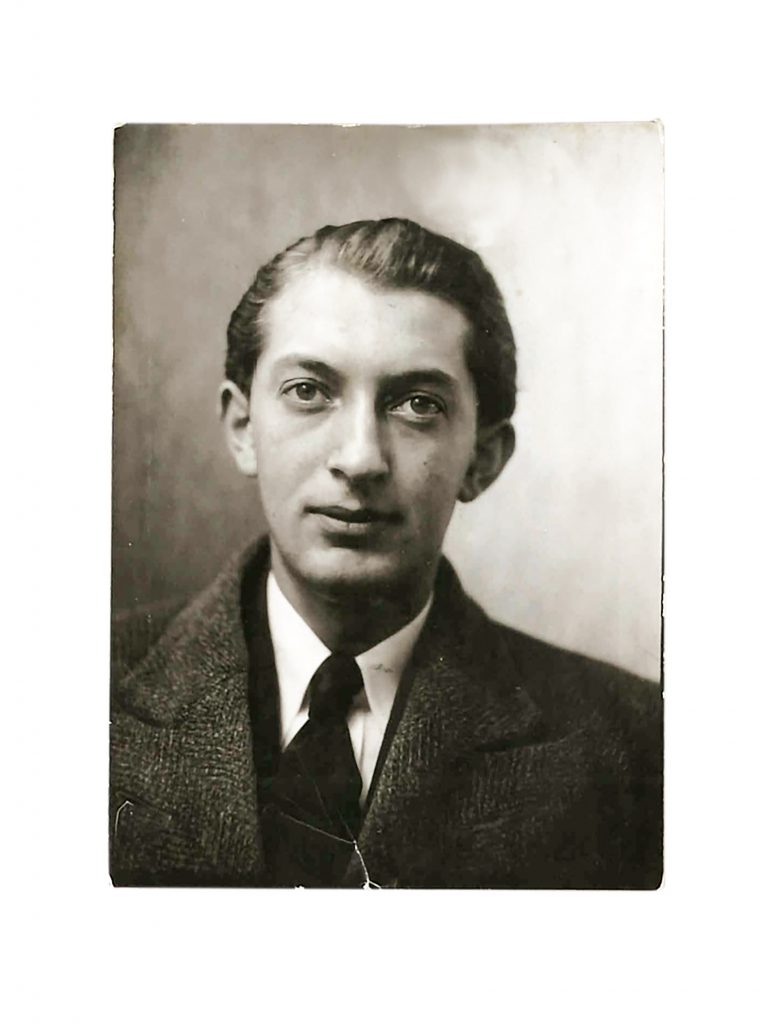
Johann Békessy, 1933
The Austro-Hungarian journalist of Jewish background János Békessy – an open opponent of Hitler – has used the pen name Hans Habe since 1937.
Archives d’Etat de Genève, Genf
Johann Békessy, 1933
The Austro-Hungarian journalist of Jewish background János Békessy – an open opponent of Hitler – has used the pen name Hans Habe since 1937.
Archives d’Etat de Genève, Genf
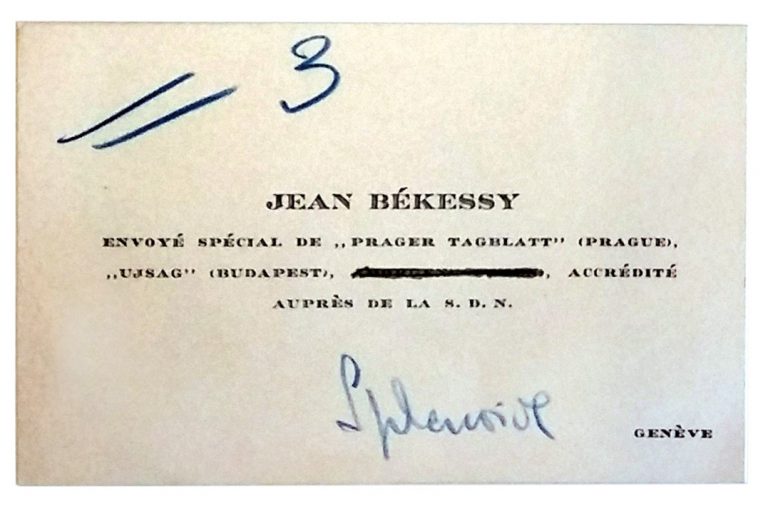
Business card of Jean Békessy (Hans Habe) with blue conference registration number
Under his original name, he is accredited as correspondent of the Prager Tagblatt (German-language Prague newspaper) at the League of Nations in Geneva and at the refugee conference in Évian, where he is staying at the Hotel Splendide.
United Nations Archives, Genf
Business card of Jean Békessy (Hans Habe) with blue conference registration number
Under his original name, he is accredited as correspondent of the Prager Tagblatt (German-language Prague newspaper) at the League of Nations in Geneva and at the refugee conference in Évian, where he is staying at the Hotel Splendide.
United Nations Archives, Genf
![Prager Tagblatt , July 7, 1938 Based on his reports for the Prager Tagblatt, Hans Habe [Békessy] publishes his documentary novel, “The Mission”, in 1965. Collegium Carolinum, München](https://evian1938.de/files/k-5-3-prager-tagblatt-7-juli-1938-bc2_3207-beitragsbild-768x768.jpg)
Prager Tagblatt , July 7, 1938
Based on his reports for the Prager Tagblatt, Hans Habe [Békessy] publishes his documentary novel, “The Mission”, in 1965.
Collegium Carolinum, München
Prager Tagblatt , July 7, 1938
Based on his reports for the Prager Tagblatt, Hans Habe [Békessy] publishes his documentary novel, “The Mission”, in 1965.
Collegium Carolinum, München
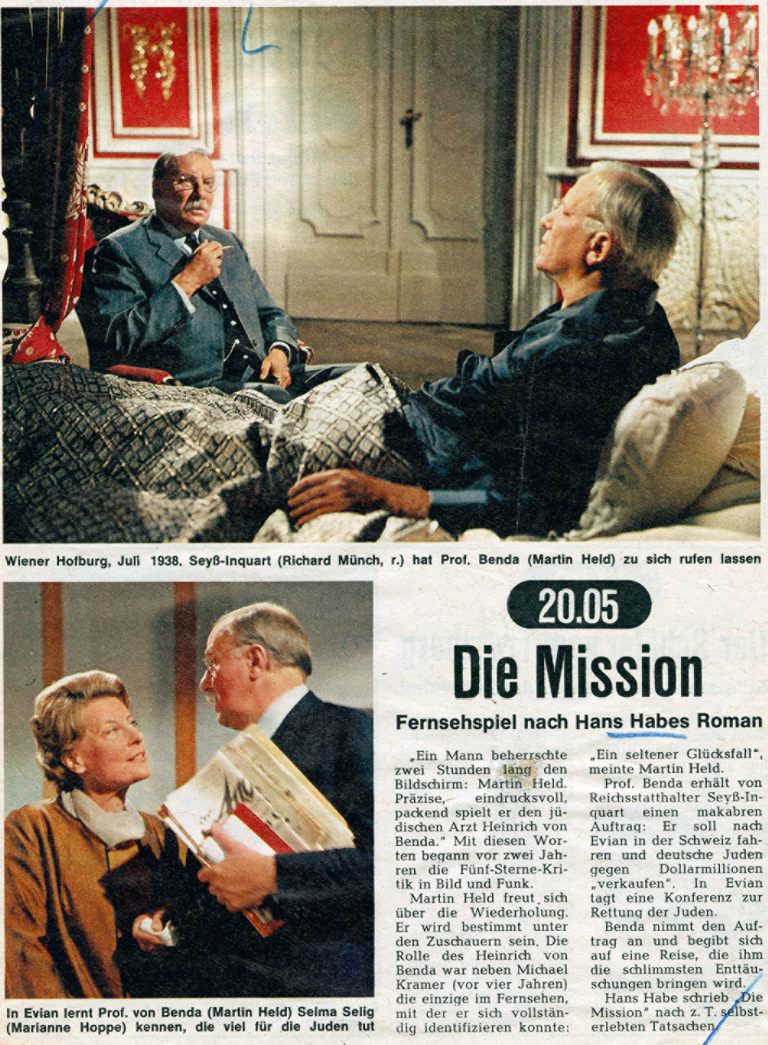
Bild und Funk , No. 19/1969
Hans Habe’s successful novel “The Mission”, enriched with spectacular fictional details, is filmed by Bayerischer Rundfunk in 1966 and shown again on German television in 1969. Actor Martin Held plays the role of the protagonist, Professor Heinrich von Benda, a character based on the Austrian Jewish doctor Heinrich Neumann von Héthars.
FUNKE Programmzeitschriften GmbH / Bayerischer Rundfunk, München
Bild und Funk , No. 19/1969
Hans Habe’s successful novel “The Mission”, enriched with spectacular fictional details, is filmed by Bayerischer Rundfunk in 1966 and shown again on German television in 1969. Actor Martin Held plays the role of the protagonist, Professor Heinrich von Benda, a character based on the Austrian Jewish doctor Heinrich Neumann von Héthars.
FUNKE Programmzeitschriften GmbH / Bayerischer Rundfunk, München
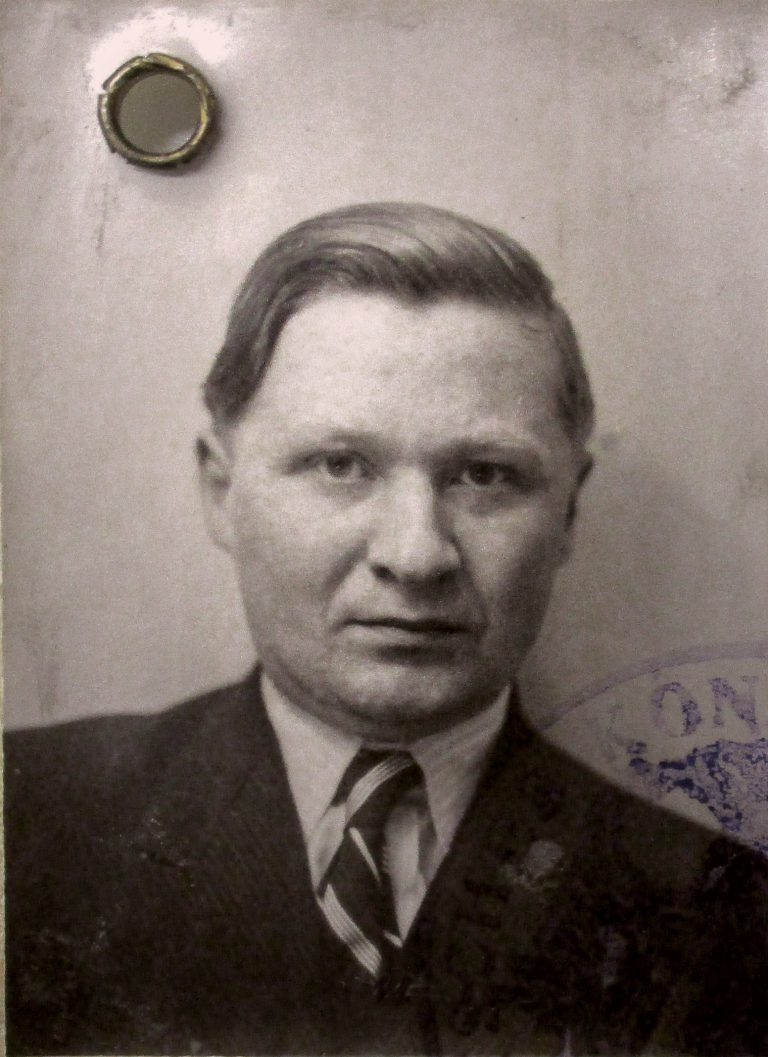
Ernst Reibstein, 1936
Ernst Reibstein begins his journalistic career in 1925 as foreign-policy editor of Wolffsches Telegraphenbüro. After its forced integration into the German News Agency in 1934, he covers the League of Nations for the latter in Geneva.
Schweizerisches Bundesarchiv, Bern, E4264#19882#32031
Ernst Reibstein, 1936
Ernst Reibstein begins his journalistic career in 1925 as foreign-policy editor of Wolffsches Telegraphenbüro. After its forced integration into the German News Agency in 1934, he covers the League of Nations for the latter in Geneva.
Schweizerisches Bundesarchiv, Bern, E4264#19882#32031
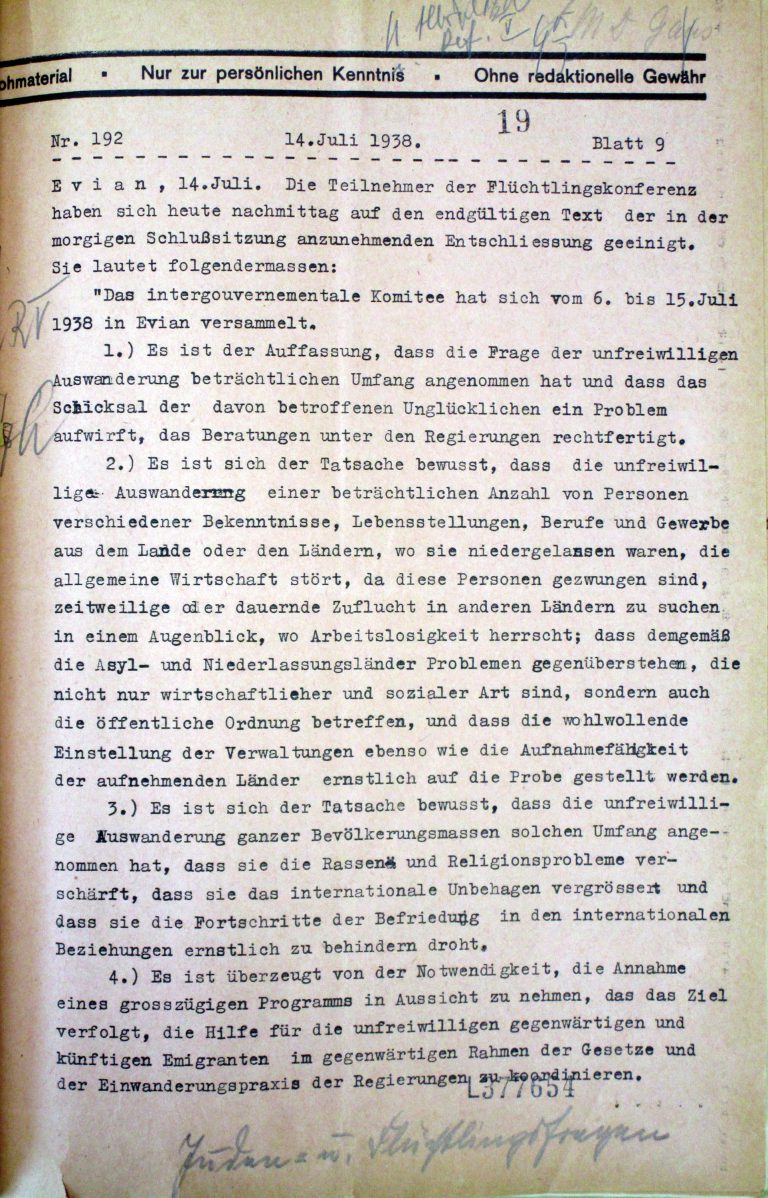
German News Agency , Report No. 192 of July 14, 1938
His agency reports from the Évian Conference feed into the inflammatory coverage in Nazi newspapers. In the autumn of 1944, Reibstein refuses a call to return to Berlin and remains in Switzerland.
Auswärtiges Amt / Politisches Archiv, Berlin, R 49420
German News Agency , Report No. 192 of July 14, 1938
His agency reports from the Évian Conference feed into the inflammatory coverage in Nazi newspapers. In the autumn of 1944, Reibstein refuses a call to return to Berlin and remains in Switzerland.
Auswärtiges Amt / Politisches Archiv, Berlin, R 49420
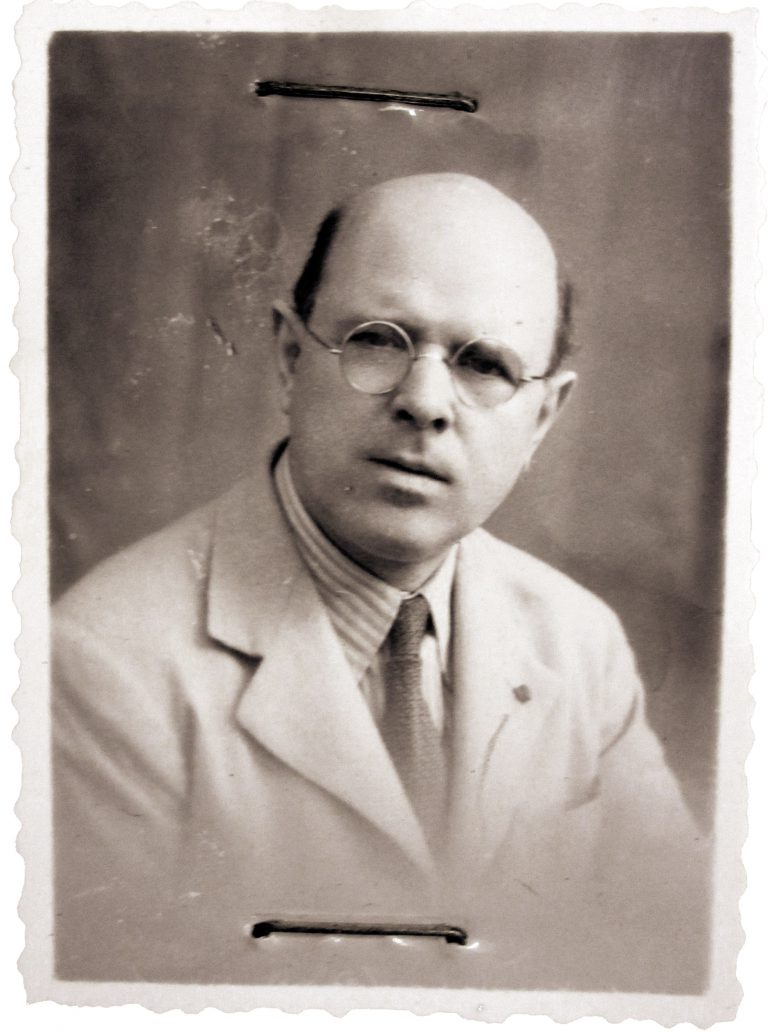
Pau Casals, ca. 1939
As a dedicated democrat, the Catalan cellist Pau Casals i Defilló (1876–1973) refuses to perform in Germany after Hitler’s seizure of power. Since the outbreak of the Spanish Civil War in 1936, he has been living in exile in southern France. With his visit to Évian, he expresses his solidarity with refugees from the Hitler regime.
Schweizerisches Bundesarchiv, Bern, E2200.41-04#10001682#1299
Pau Casals, ca. 1939
As a dedicated democrat, the Catalan cellist Pau Casals i Defilló (1876–1973) refuses to perform in Germany after Hitler’s seizure of power. Since the outbreak of the Spanish Civil War in 1936, he has been living in exile in southern France. With his visit to Évian, he expresses his solidarity with refugees from the Hitler regime.
Schweizerisches Bundesarchiv, Bern, E2200.41-04#10001682#1299
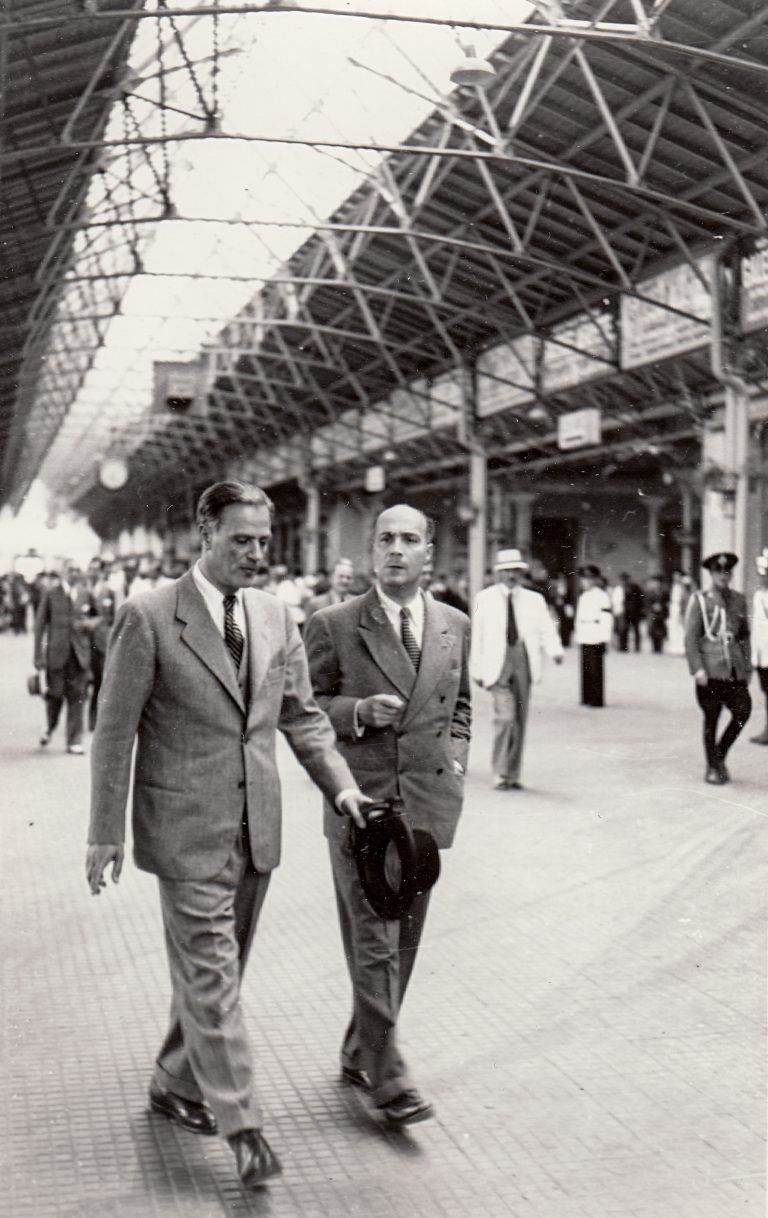
Gheorghe Crutzescu (r.) with Romanian Foreign Minister Grigore Gafencu, ca. 1939
Gheorghe Crutzescu, Romania’s permanent representative to the League of Nations in Geneva, reports to his government.
Arhivele Naţionale Istorice Centrale Bucureşti, Bukarest
Gheorghe Crutzescu (r.) with Romanian Foreign Minister Grigore Gafencu, ca. 1939
Gheorghe Crutzescu, Romania’s permanent representative to the League of Nations in Geneva, reports to his government.
Arhivele Naţionale Istorice Centrale Bucureşti, Bukarest
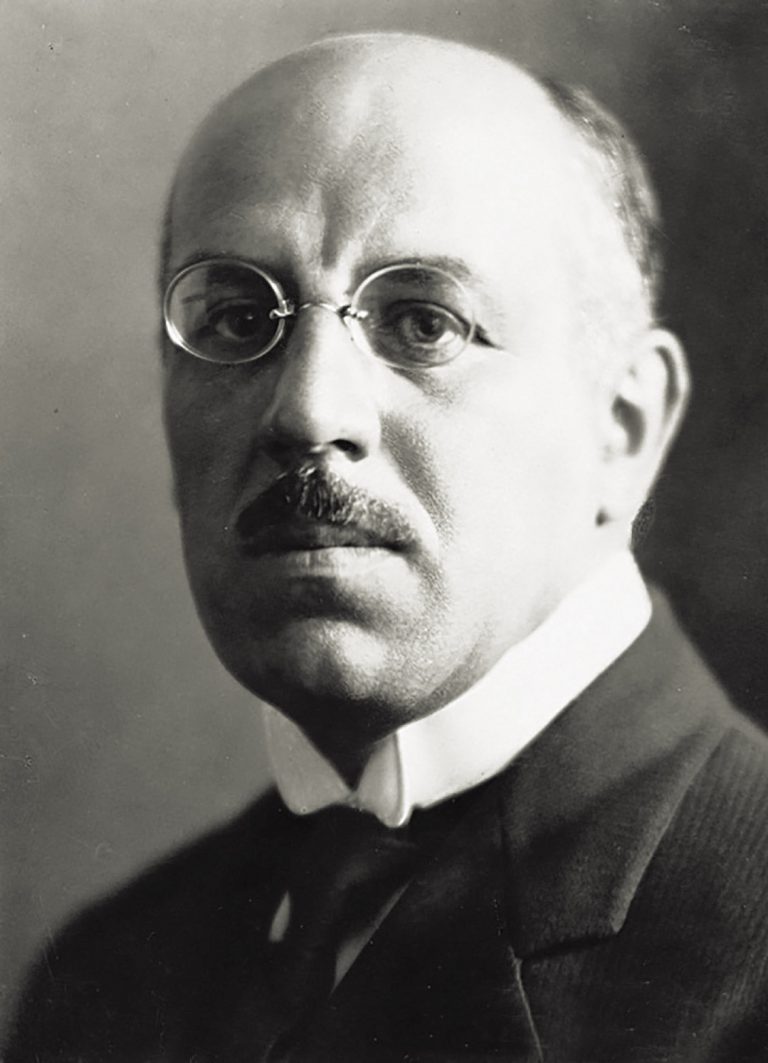
Joseph Louis Anne Avenol, ca. 1930
The French diplomat Avenol, General Secretary of the League of Nations since 1932, reacts to Germany’s annexation of Austria only by removing the latter from the list of League members and dismissing its representatives to the body. Later he tolerates the German attack on Poland and ultimately, in 1940, offers his services to the French collaboration government in Vichy.
United Nations Archives, Genf
Joseph Louis Anne Avenol, ca. 1930
The French diplomat Avenol, General Secretary of the League of Nations since 1932, reacts to Germany’s annexation of Austria only by removing the latter from the list of League members and dismissing its representatives to the body. Later he tolerates the German attack on Poland and ultimately, in 1940, offers his services to the French collaboration government in Vichy.
United Nations Archives, Genf

Erika and Friedrich Reichmann on a joke postcard from Paris, summer of 1938
Dental surgeon Friedrich Reichmann of Katowice travels to Évian to observe the conference for the Polish branch of the Jewish B’nai B’rith lodge. He is accompanied by his daughter Erika, who is studying in Paris. Both later manage to flee to the US; the rest of their family is murdered in the Holocaust.
Katarina Daniels, Montreal
Erika and Friedrich Reichmann on a joke postcard from Paris, summer of 1938
Dental surgeon Friedrich Reichmann of Katowice travels to Évian to observe the conference for the Polish branch of the Jewish B’nai B’rith lodge. He is accompanied by his daughter Erika, who is studying in Paris. Both later manage to flee to the US; the rest of their family is murdered in the Holocaust.
Katarina Daniels, Montreal
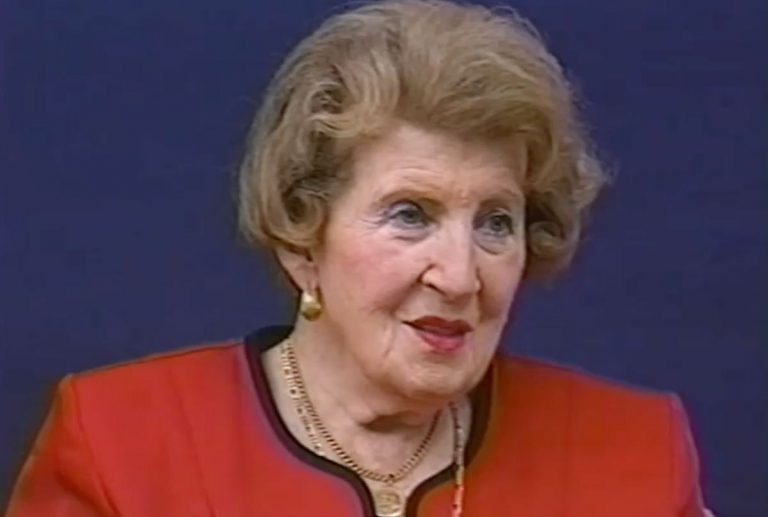
Together with her father in Évian
Clips from interview with Erika Daniels née Reichmann, Dezember 11, 1996, Montreal, Canada
© Montreal Holocaust Memorial Centre/USC Shoah Foundation Visual History Archive, Interview Code: 54515)
Together with her father in Évian
Clips from interview with Erika Daniels née Reichmann, Dezember 11, 1996, Montreal, Canada
© Montreal Holocaust Memorial Centre/USC Shoah Foundation Visual History Archive, Interview Code: 54515)


![Prager Tagblatt , July 7, 1938 Based on his reports for the Prager Tagblatt, Hans Habe [Békessy] publishes his documentary novel, “The Mission”, in 1965. Collegium Carolinum, München](https://evian1938.de/files/k-5-3-prager-tagblatt-7-juli-1938-bc2_3207-beitragsbild-2800x2800.jpg)






